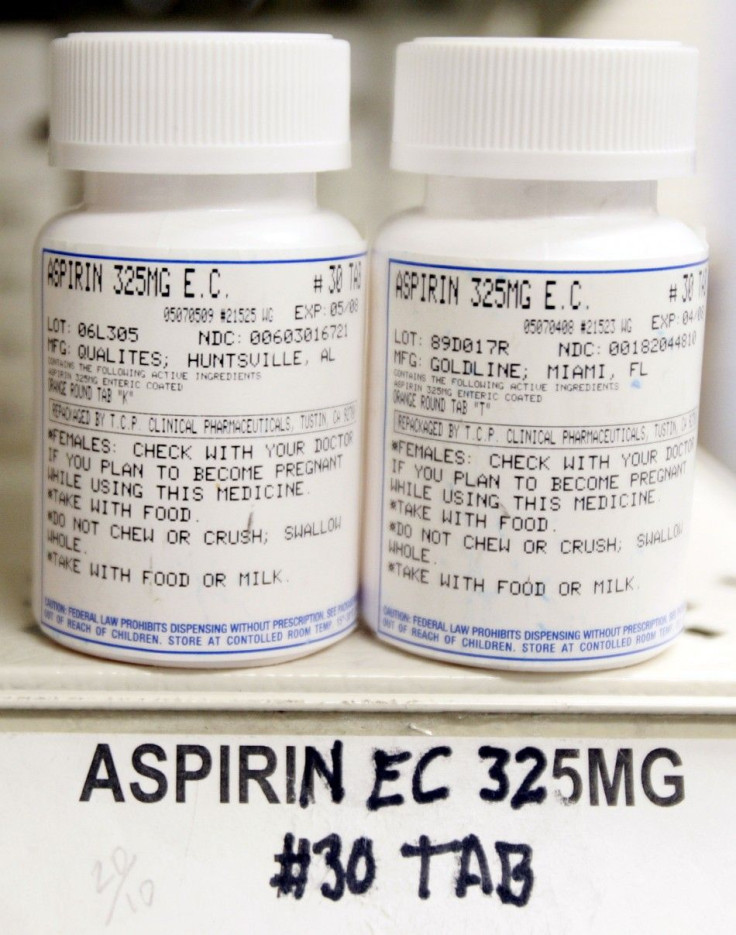Stopping Aspirin Increases Chances of Heart Attack: Study

People with a history of heart disease shouldn't stop taking daily low-dose aspirin because to do so would increase their risk of getting a non-fatal heart attack, a study shows.
The researchers reported that those with a history of heart disease, who stopped taking aspirin, had a 60 percent increased risk of a heart attack, according to the BBC. The study is published in the British Medical Journal.
Patients on low-dose aspirin for secondary prevention of cardiovascular disease should be advised that unless there is a high risk of serious bleeding or otherwise recommended by a doctor, aspirin should never be discontinued, given its overwhelming benefit [on heart health], Dr. Luis A. Garcia Rodriguez, director of the Spanish Center for Pharmacoepidemiologic Research, told WebMD.
Researchers used data from a British medical records database on nearly 40,000 patients who are between 50 and 84 years with a first prescription for aspirin. These patients were prescribed 75 to 300 milligrams of daily aspirin and were documented for three years. This was to find out if the people who stopped taking aspirin had any heart attack or died from a heart condition.
Spanish researchers found there were 876 non-fatal myocardial infarctions, or heart attacks, and 346 deaths from coronary heart disease, according to an abstract of the study. It also shows that for every 1000 patients, over a one-year period there were about four more cases of non-fatal heart attacks among patients who stopped taking low-dose aspirin compared with patients who didn't.
© Copyright IBTimes 2024. All rights reserved.






















